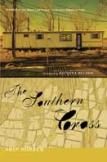Katrina Land
The Gulf Coast crosses the South from Florida to Texas, five states, and some may think of the coast as a sixth, defined as it is by ports of call, oil rigs, casinos and an ethnically diverse population. Fishing vessels ply the waterways; so do ’gators and seagulls. Neither the men nor the women who work and live there are easily shocked. Life on a waterfront wises people up. References to prison occur with some regularity.
Skip Horack’s debut book, a collection of 16 short stories set on or around the Gulf Coast, brings us close to these hard-knuckled but fair-minded men and women. As the accomplished fiction writer Antonya Nelson, who selected Horack’s book for the Bakeless Prize sponsored by the Bread Loaf Writers’ Conference, informs us in her brief foreword, “Every one of these stories serves up a unique world peopled by individuals who could, each of them, star in his or her own series.”
It is the year of Katrina. A child named Kenyatta announces to a stevedore that she has, with her Bible, killed the “serpent” under his house. Now she needs him to buy her a new “King James.” Later, she warns him that “Reverend Gray says they gonna punish this city soon enough.” Clayton (the stevedore) wonders what brought a cottonmouth to the basement of his “clapboard shotgun.” The reader will wonder if the cottonmouth is an early indication of Katrina.
As tough as the men are, the women may be tougher. It is a real pleasure to read a male writer who can tell a story from a satisfactory female point of view—the view of believable, equal women who live their lives with hope but without illusion. In “Junebelle” an elderly widow whose children have parked her in a retirement home plays along with her family and the staff but endures an anguished loneliness. In the lounge she chats first with the bartender, then with a man named Bud Long. By the end of the story Junebelle and Bud are allied in their outlook on the world. That is all, but it is enough to render them individual and real.
These stories make no attempt to explain themselves, and they do not insist upon significance. Like the characters they are about, they simply present themselves on the page unbuttressed by fanfare or symbolism or even a backstory. Surely this is a mark of a committed and confident author. Horack, a former lawyer who studied writing at Stanford University as a Stegner Fellow, now teaches there. Perhaps one can discern in the epigraph to this book a reason for his refusal to adorn his stories with epiphany or reflection. Citing Alfred North Whitehead, the epigraph reminds us that “the essence of dramatic tragedy...resides in the solemnity of the remorseless working of things.” Solemnity of this sort does not preclude humor or a happy ending. It does suggest a world whose flaws will be duly revealed.
Thus, in “The Redfish,” Hurricane Katrina comes to the fore:
The bossman called late Saturday and offered time-and-a-half cash wages in exchange for Luther’s help clearing the dock, a hand moving equipment into the warehouse while the rest of the city evacuated.
Nine months out of Angola Prison, Luther, otherwise known as Redfish Jackson, wants no trouble, just a job. He declines to leave New Orleans as long as there is money to be made. When at last he and his girlfriend, Shonda, heading out, stop to pick up her mother, Luther learns that Shonda is already married—and her husband is holding a shotgun that is pointed at him. Shonda and her husband wrap him in duct tape.
By the time Luther gets his hands free, Shonda and her husband are gone. He finds her mother duct-taped in the closet. Gently, he removes the tape.
Luther did time for a crime he did not commit, although he may have committed another. The real criminal finally confessed. (The police find black men interchangeable.) Luther and Shonda’s mother, Betty, create some soup and wait for Katrina to make landfall. He tries but cannot talk Betty into leaving her trailer. He saves himself.
Is there a touch of broad humor here? I think so, but it is a knotty kind of humor, more like that of Faulkner or Flannery than George Garrett or George Singleton.
“The High Place I Go” introduces us to a married nurse who is having an affair with a paraplegic veteran of the Iraq war; he is 15 years younger. “Of all the hospitals in all the towns in all the world,” she tells him, as if she were Bogart and he Bergman.
With memorable characters and interesting plots, The Southern Cross should make a favorable impression on its readers. But plot or character is not the star here, language is. Precise, informative, evocative, surprising, the language of these stories shines with hard brilliance. We hear how a rabbit farmer talks. “I was her husband,” he says, explaining himself to a young cop, the past tense exposing his sad loss of self. In “Borderlands” we read of one girl that “a pool of girls absorbed her like a bead of mercury.” The protagonist of the closing story “fished the back, dead-end waters above North Pass, stretching small nets along the trespasses and washout gaps where bayous bled into the swamp.”
Horack is a new, vigorous voice, not loud but splendidly clear.
This article also appeared in print, under the headline “Katrina Land,” in the November 23, 2009, issue.








